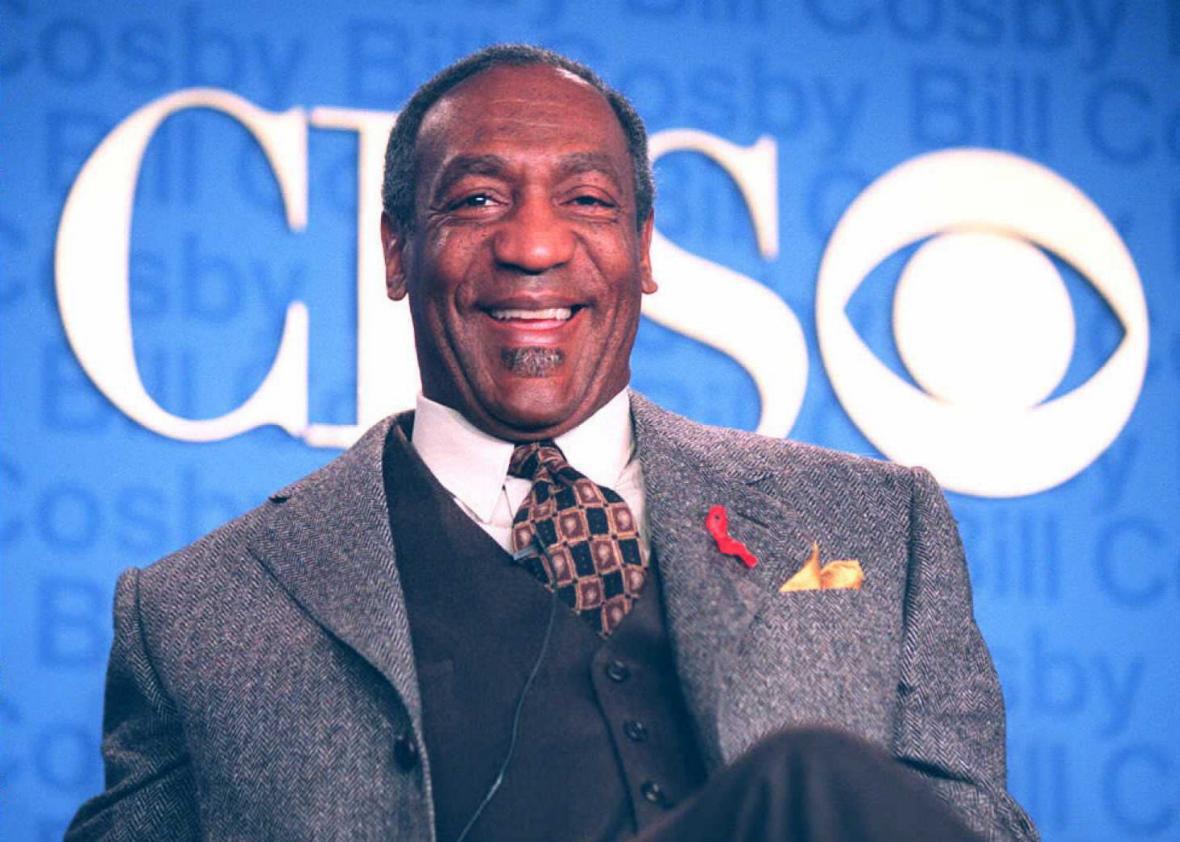It’s been nearly a year since a joke from Hannibal Buress’ stand-up routine—augmenting a February Gawker post—reminded the public of the many women who’ve accused Bill Cosby of sexual assault. Since dozens more allegations and a damning deposition testimony have surfaced, it’s hard to believe there were days when we still wondered if Cosby’s legacy could survive the alleged monstrosities of his past.
Thursday night, A&E will premiere an hourlong special about the conservative apologist’s fall from public favor. Framed by a chronological telling of his career arc, it plays as a damning biographical documentary—a profoundly unflattering look back at how, at every step in his professional life, Cosby used his money, fame, and paternal reputation to manipulate young women.
It also offers a glimpse at how future cultural critics might analyze his life. Video is an effective means of exposing Cosby’s hypocrisies: Disturbing personal accounts from 13 women he allegedly assaulted cut even deeper when paired with audio of his 1960s stand-up (including one boding bit about slipping women a purported aphrodisiac, Spanish fly) and footage from his moralizing speeches, in which he’d vilify pregnant black teens for having sex. Viewed from above, Cosby’s downfall seems inevitable from the start, even though plenty of other men in power have gone peacefully to their graves after a history of physical and sexual abuse.
Some will no doubt say the TV special cribbed its style from New York magazine’s excellent July cover story, which told the stories of 35 women who have accused Cosby of rape or sexual assault. A&E’s show offers similar portrait shots and overlapping testimonies as the magazine spread—the show even dresses them in the same all-black garments. And, of course, the women who appeared in both tell the same stories. Because the list of Cosby’s accusers grows longer by the month, A&E was able to add new testimonials from three who came forward after the New York article (Charlotte Fox, Eden Tirl, and “Elizabeth,” who uses a pseudonym).
For many of the rest, this special marks the umpteenth time they’ve publicly recounted memories of pain and shame. “If there is any question about why women don’t report rape, it’s because it’s damned humiliating,” says Victoria Valentino, who says Cosby raped her more than 40 years ago. “You don’t want to ever talk about it again.” All the more reason, then, to listen when they do.
